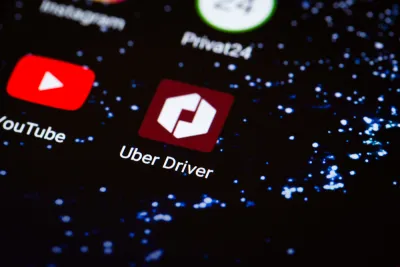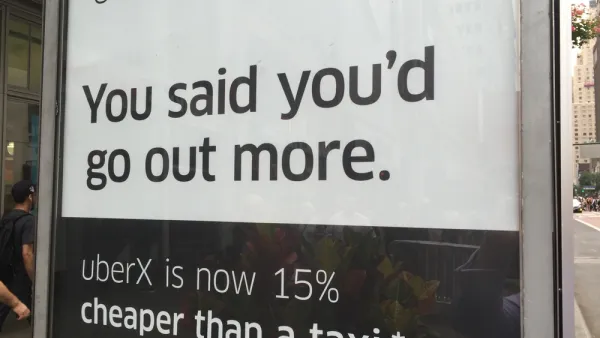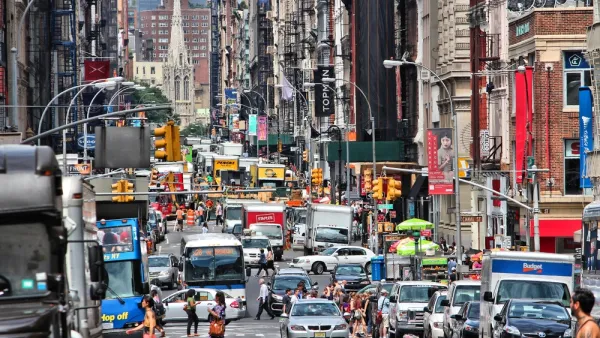These aren't the ride-hailing outcomes we were promised.

A new working paper by researchers at the Stigler Center at the University of Chicago Booth School of Business finds evidence that the dawn of transportation network companies coincides with increases in vehicle registrations and traffic fatalities—outcomes far from the utopian ideal predicted by proponents of TNCs when they first hit the streets.
Luigi Zingaled shares the findings of the new Stigler working paper by John Barrios (University of Chicago), Yael Hochberg and Livia Yi (Rice University):
Not only does the introduction of ride-sharing seem to not reduce congestion, it actually increases the number of car registrations by 3 percent. Most importantly, Barrios et al. find that the introduction of ride-sharing increases the number of fatal accidents by 3 percent (in the aggregate, this is equivalent to 987 extra lives lost every year in the United States alone).
The researchers built these finds on evidence found in data on traffic fatalities from the National Highway Traffic Safety Administration (NHTSA).
Exploiting the staggered entry of ride-sharing into different cities, the authors were able to measure the changes in accident trends in the eight quarters that preceded and followed the introduction of ride-sharing. As the figure [in the article[] shows, there is a rise in fatal accidents following the entry of ride-sharing into a city (time zero)….
The article concludes by suggesting the policy mechanism that will most effectively address the externalities generated by TNCs (hint: it's not a ban or cap on the number ride-hailing drivers).
The new paper is the latest of a string of new data and research to emerge on the impacts of transportation network companies like Uber and Lyft. The news has mostly been bad, with perhaps one exception. Seattle and the Bay Area have quantified how much traffic ride-hailing adds to transportation system, and multiple studies suggest ride-hailing poaches rides from public transit.
FULL STORY: Does Uber Kill? The Real Cost of Ride-sharing

Analysis: Cybertruck Fatality Rate Far Exceeds That of Ford Pinto
The Tesla Cybertruck was recalled seven times last year.

National Parks Layoffs Will Cause Communities to Lose Billions
Thousands of essential park workers were laid off this week, just before the busy spring break season.

Retro-silient?: America’s First “Eco-burb,” The Woodlands Turns 50
A master-planned community north of Houston offers lessons on green infrastructure and resilient design, but falls short of its founder’s lofty affordability and walkability goals.

Test News Post 1
This is a summary

Analysis: Cybertruck Fatality Rate Far Exceeds That of Ford Pinto
The Tesla Cybertruck was recalled seven times last year.

Test News Headline 46
Test for the image on the front page.
Urban Design for Planners 1: Software Tools
This six-course series explores essential urban design concepts using open source software and equips planners with the tools they need to participate fully in the urban design process.
Planning for Universal Design
Learn the tools for implementing Universal Design in planning regulations.
EMC Planning Group, Inc.
Planetizen
Planetizen
Mpact (formerly Rail~Volution)
Great Falls Development Authority, Inc.
HUDs Office of Policy Development and Research
NYU Wagner Graduate School of Public Service




























